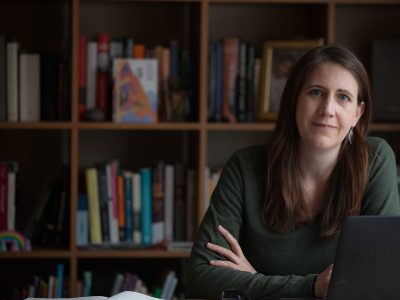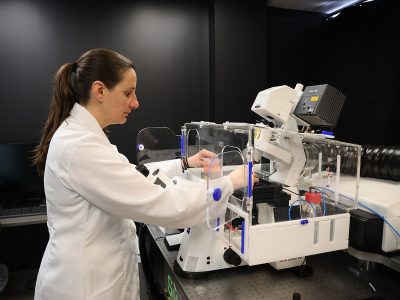By Susan Hickman
Photos by Mike Pinder
In accepting an honorary degree from Carleton University, the recently retired United Nations High Commissioner for Refugees (UNHCR), Antonio Guterres, praised the efforts of Canada and the university in welcoming Syrian refugees.
As a successful example of pluralism, Canada is particularly well-placed to lead international efforts to promote humanitarian reforms and to prevent conflicts around the world, said Guterres, who spent a decade on the job.
The honorary degree, said Guterres “has a very relevant symbolic value considering Canada recently took a number of measures to resettle 25,000 Syrian refugees. Canada is opening its doors while others are closing their borders and making it difficult for people to enter.”

Carleton University awarded an honorary degree to Antonio Guterres, who served for a decade as United Nations (UN) High Commissioner for Refugees (UNHCR), on Jan. 29, 2016.
Added Guterres: “I think what Carleton University is doing is remarkable. It’s an example I would like to see universities in many parts of the world following. It’s very much in line with what Canada today is – a remarkable example of pluralism that makes people feel they belong, even if they came from all parts of the world.”
Carleton was the first university in Canada to settle refugees.
Since 1978, it has sponsored a refugee annually through the Student Refugee Program of the World University Service of Canada (WUSC). Student volunteers run the WUSC Local Committee at Carleton, drawing on levies to allow them to continue their studies at Carleton.
Abdulrahman Almasri, 24, had been studying banking at Damascus University when he left Syria in 2012 “because of the war.” Sponsored by the WUSC refugee program at Carleton in 2014, Almasri has gone on to study political science and now co-chairs the WUSC Local Committee.
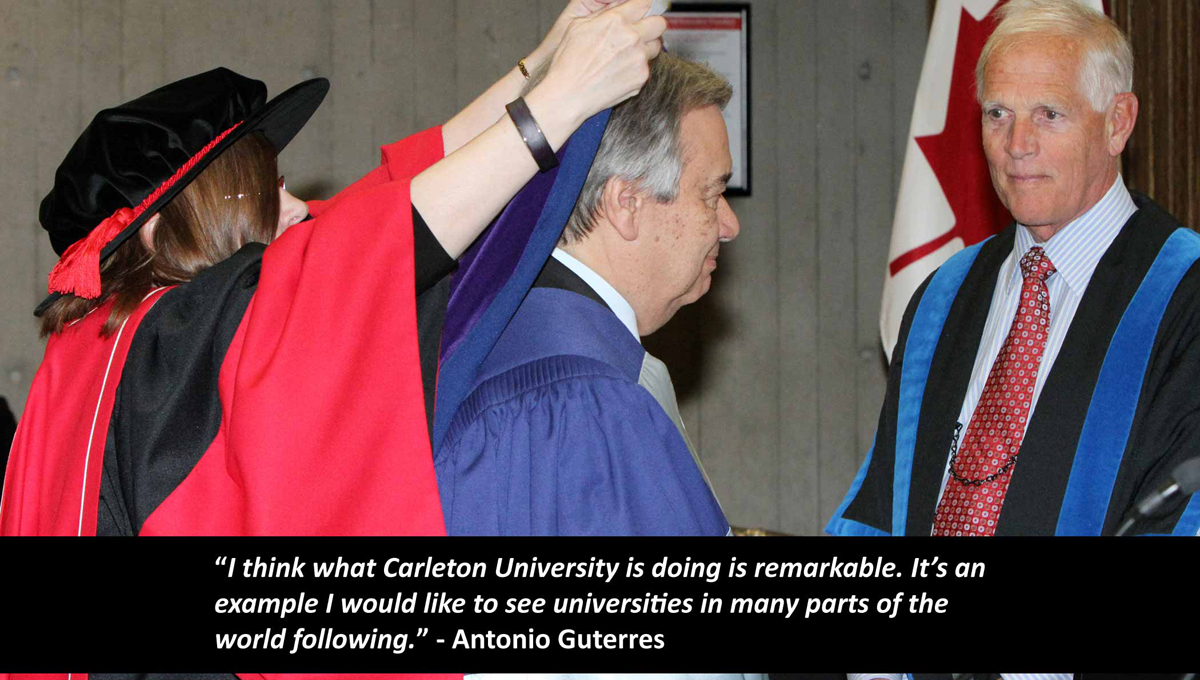
Noting that a good percentage of refugees are under the age of 24, Almasri said “there’s a huge population that needs an education and needs to start a new life. The opportunity I have been given, resettled to a safe environment, combined with an education and being part of the community, is important for any person.
“Now I want to help others.”
“An education is the most important tool you can use to change the world,” adds co-chair Efrem Berhe, 22, who arrived in Canada from a refugee camp in Sudan in 2009.
Now studying public affairs and policy management, Berhe said two refugee students were welcomed in September 2015 – one from Syria and one from Malawi – and in January, two more Syrians joined Carleton.
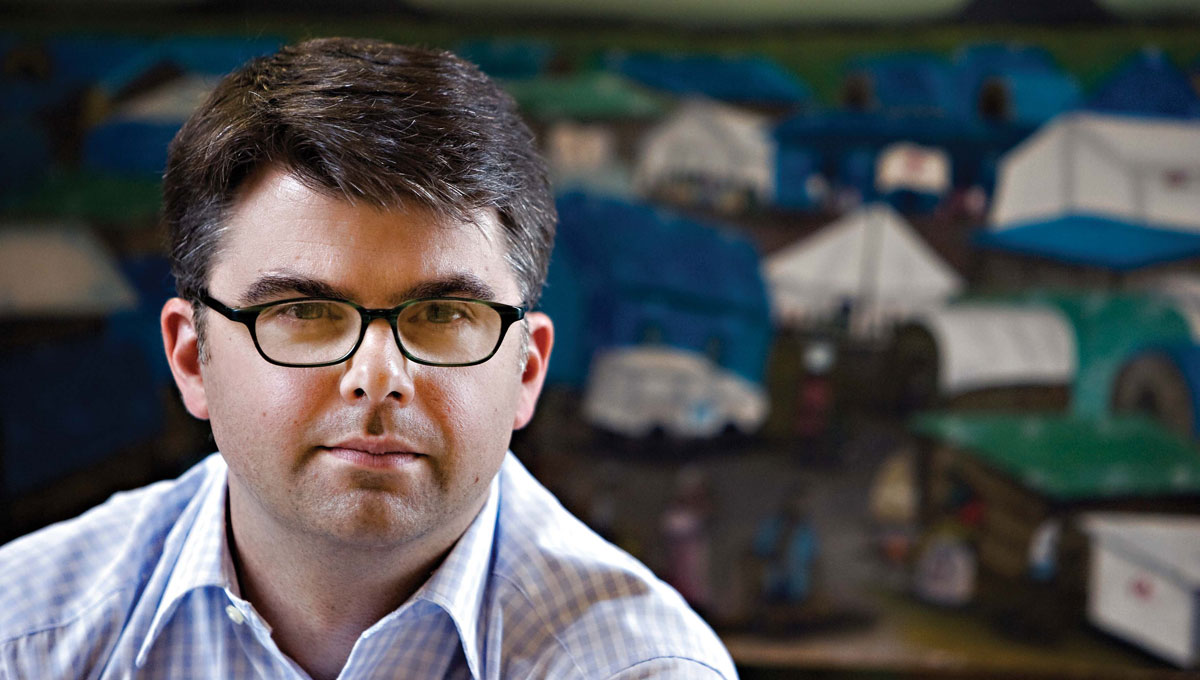
James Milner, associate professor of Political Science, says universities should sponsor refugees for resettlement
James Milner, an associate professor in the Department of Political Science, said part of the role of universities in responding to the Syrian crisis is sponsoring refugees for resettlement.
A researcher and policy adviser on refugee and peacebuilding issues, and a consultant for the UNHCR, Milner noted that Carleton formed a committee to develop a more robust response to the current crisis. It is also in the process of hiring a Research Chair in Migration and Refugee Law and Politics, a unique research chair that bridges law and politics.
Carleton’s Migration and Diaspora Studies initiative, which grew out of a blue sky meeting on globalization and global identities in 2010, contributes to multiple disciplines and research centres. Thirty faculty members work on everything from global refugee policy to the history of humanitarian aid and the study of culture through transnational approaches.
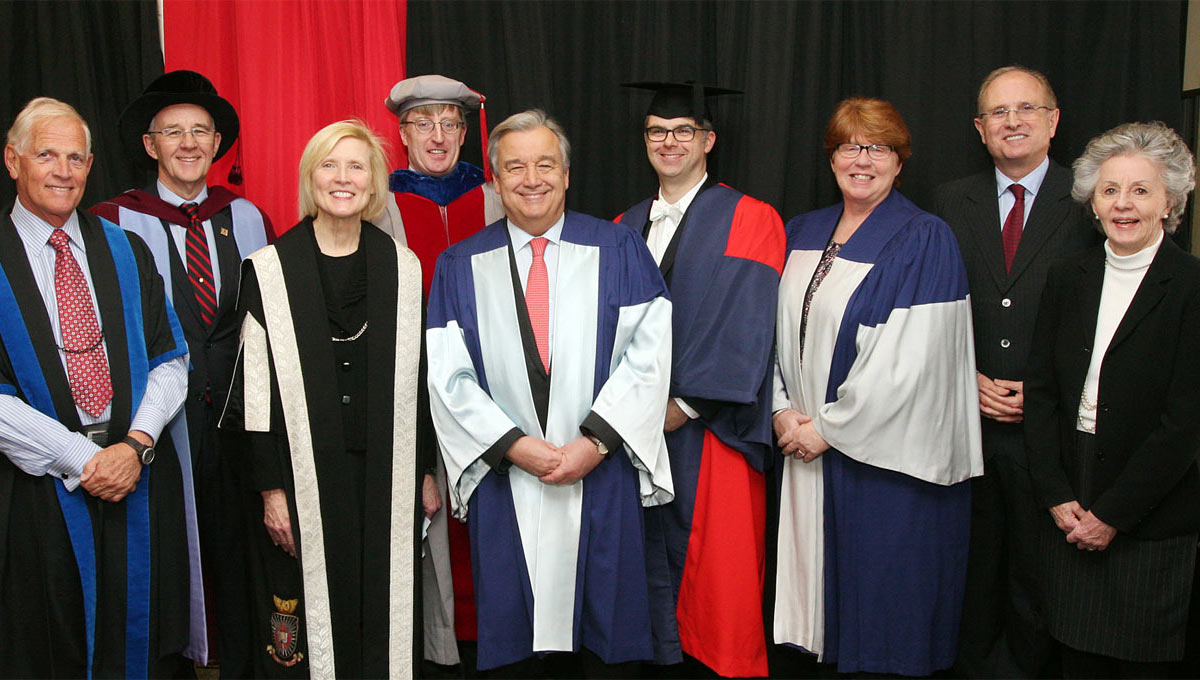
“The refugee crisis is a problem the world has had for centuries,” said Carleton President Roseann O’Reilly Runte. “We must continue working on a solution, and that solution has to come not only from our governments, but from our universities, where we can figure out intellectual ways for people to understand each other.
Carleton conferred a Doctor of Laws, honoris causa, on Guterres in recognition of his humanitarian leadership in protecting the world’s refugees.
“His work for international refugees and the plight of stateless individuals has resulted in better and more secure lives for so many,” said Runte. “He championed international efforts to respond to new forms of displacement, including those resulting from climate change and natural disasters.”
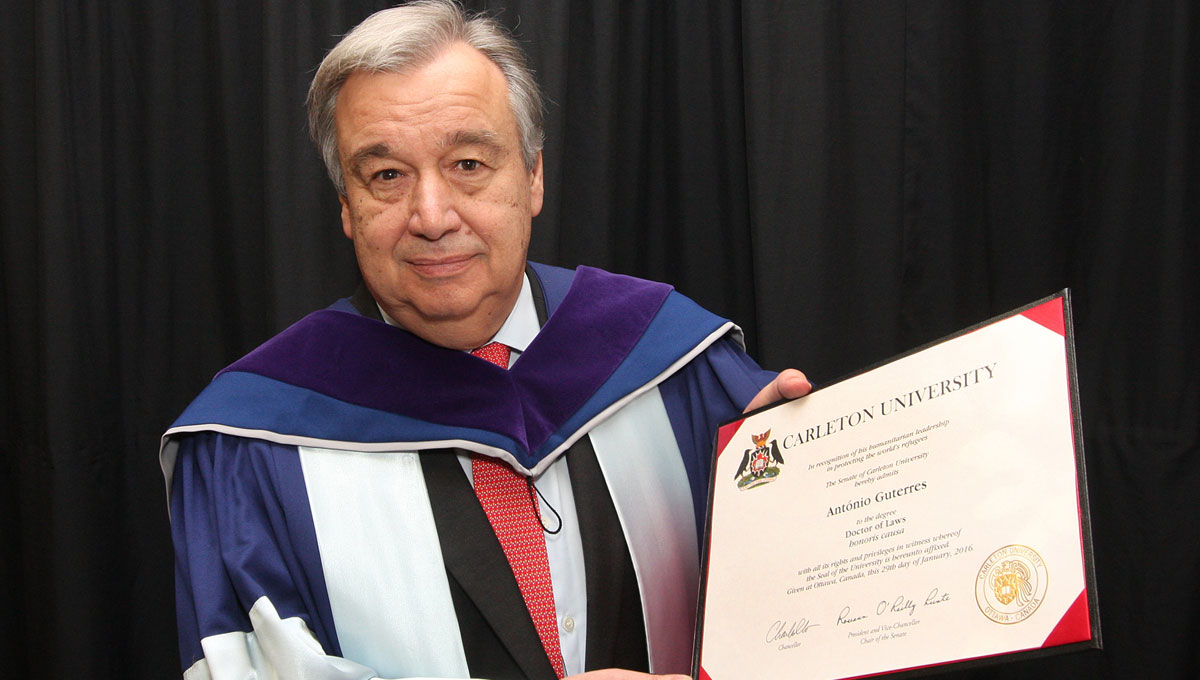
Antonio Guterres was awarded a Doctor of Laws, honoris causa in recognition<br /> of his humanitarian leadership in protecting the world’s refugees
The UN General Assembly elected Guterres to the post in May 2005. As High Commissioner, he headed one of the world’s largest humanitarian organizations with more than 9,000 staff working in 123 countries, providing protection and assistance to over 46 million refugees, returnees, internally displaced people and stateless individuals. Stateless individuals lack official nationality or citizenship, and possess no recognized link to any state. He retired from the position last December.
Tuesday, February 2, 2016 in Community, Honorary Degrees, Refugees
Share: Twitter, Facebook


